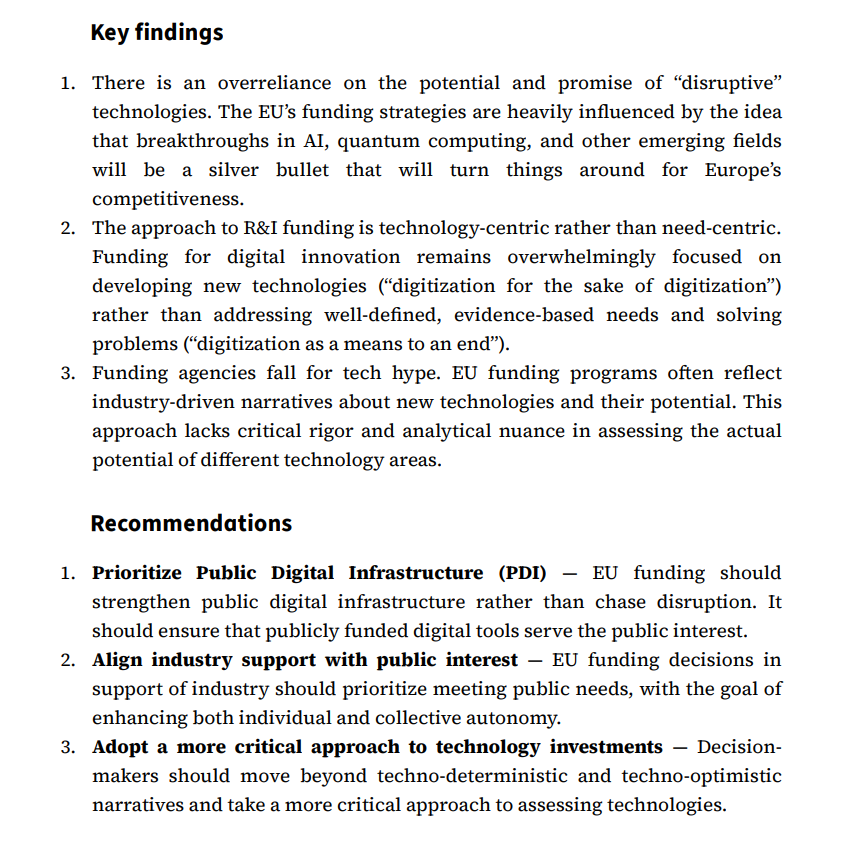Key findings and recommendations from the Critical Infrastructure Lab’s new report on the EU’s digital innovation funding (like Horizon) and tech sovereignty. Lessons for Canada 🤔 #tech #techpolicy #digitalSovereignty

Key findings and recommendations from the Critical Infrastructure Lab’s new report on the EU’s digital innovation funding (like Horizon) and tech sovereignty. Lessons for Canada 🤔 #tech #techpolicy #digitalSovereignty
